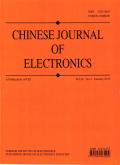Federated Offline Reinforcement Learning with Proximal Policy Evaluation
IF 1.6
4区 计算机科学
Q3 ENGINEERING, ELECTRICAL & ELECTRONIC
引用次数: 0
Abstract
Offline reinforcement learning (RL) has gathered increasing attention in recent years, which seeks to learn policies from static datasets without active online exploration. However, the existing offline RL approaches often require a large amount of pre-collected data and hence are hardly implemented by a single agent in practice. Inspired by the advancement of federated learning (FL), this paper studies federated offline reinforcement learning (FORL), whereby multiple agents collaboratively carry out offline policy learning with no need to share their raw trajectories. Clearly, a straightforward solution is to simply retrofit the off-the-shelf offline RL methods for FL, whereas such an approach easily overfits individual datasets during local updating, leading to instability and subpar performance. To overcome this challenge, we propose a new FORL algorithm, named model-free (MF)-FORL, that exploits novel “proximal local policy evaluation” to judiciously push up action values beyond local data support, enabling agents to capture the individual information without forgetting the aggregated knowledge. Further, we introduce a model-based variant, MB-FORL, capable of improving the generalization ability and computational efficiency via utilizing a learned dynamics model. We evaluate the proposed algorithms on a suite of complex and high-dimensional offline RL benchmarks, and the results demonstrate significant performance gains over the baselines.具有近端策略评估功能的联合离线强化学习
离线强化学习(RL)近年来受到越来越多的关注,它试图在不主动在线探索的情况下,从静态数据集中学习策略。然而,现有的离线强化学习方法通常需要大量预先收集的数据,因此在实践中很难由单个代理来执行。受联合学习(FL)进步的启发,本文研究了联合离线强化学习(FORL),即多个代理协同进行离线策略学习,无需共享原始轨迹。显然,一个直接的解决方案是简单地将现成的离线 RL 方法改造为 FL,而这种方法在局部更新过程中很容易过度适应单个数据集,从而导致不稳定性和性能低下。为了克服这一挑战,我们提出了一种新的 FORL 算法,命名为无模型 (MF)-FORL 算法,它利用新颖的 "近端局部策略评估 "来明智地推高超出局部数据支持的行动值,使代理能够捕捉个体信息而不遗忘综合知识。此外,我们还引入了基于模型的变体 MB-FORL,它能够通过利用学习到的动力学模型提高泛化能力和计算效率。我们在一套复杂的高维离线 RL 基准上对所提出的算法进行了评估,结果表明与基线算法相比,该算法的性能有了显著提高。
本文章由计算机程序翻译,如有差异,请以英文原文为准。
求助全文
约1分钟内获得全文
求助全文
来源期刊

Chinese Journal of Electronics
工程技术-工程:电子与电气
CiteScore
3.70
自引率
16.70%
发文量
342
审稿时长
12.0 months
期刊介绍:
CJE focuses on the emerging fields of electronics, publishing innovative and transformative research papers. Most of the papers published in CJE are from universities and research institutes, presenting their innovative research results. Both theoretical and practical contributions are encouraged, and original research papers reporting novel solutions to the hot topics in electronics are strongly recommended.
 求助内容:
求助内容: 应助结果提醒方式:
应助结果提醒方式:


